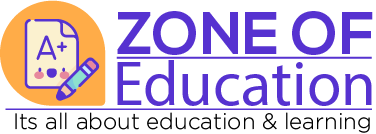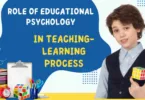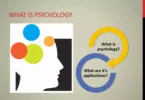In early childhood development, the significance of relationships cannot be overstated. These, from birth to age eight, are formative years marked by rapid physical, cognitive, social, and emotional growth. During this critical period, the power of relationships, particularly those with caregivers, peers, and educators, plays a pivotal role in shaping a child’s present well-being and future outcomes.
The power of relationships in early childhood development is a multifaceted force that shapes the trajectory of a child’s life. From the establishment of trust and security to the profound impact on cognitive, social, and emotional development, relationships form the cornerstone of a child’s early experiences. Nurturing positive relationships in the early years is an investment with far-reaching implications, influencing not only the individual child’s well-being but also the fabric of society for generations to come. As we navigate the complexities of early childhood development, let us recognize and harness the transformative potential embedded in the power of relationships.
Introduction to Early Childhood Development
Early Childhood Development (ECD) is a critical phase that encompasses the formative years from birth to around eight years old, a period marked by rapid physical, cognitive, social, and emotional growth. In the field of education, the introduction to early childhood development is fundamental to understanding how these early experiences shape a child’s foundation for learning and future success. Let’s delve into key aspects of this introduction, illustrating them with examples from educational contexts.
Early childhood development in education is a dynamic and multidimensional process. It involves creating environments that prioritize holistic development, integrating play-based learning, fostering responsive caregiving, and embracing diversity and inclusivity. By recognizing the interconnectedness of cognitive, physical, social, and emotional domains, educators can lay the foundation for a child’s lifelong love of learning and success in future educational endeavors.
Early childhood development in education is not just a phase; it is a critical investment in building the future capacities of our youngest learners. We are going to delve into the profound impact of relationships on the early development of children. We will explore the critical role that relationships play in shaping a child’s emotional and social well-being and how these early experiences influence their future behaviors and attitudes.
Understanding Early Childhood Mental Health
The foundation of a child’s mental health is laid in the early years, and relationships with caregivers and the environment play a significant role. Positive early experiences contribute to a child’s emotional resilience and well-being, while negative experiences can lead to lasting effects on their mental health.
Development of Relationships and Regulatory Abilities
The close and secure relationships that children build in their early years greatly influence their ability to regulate emotions and behavior. These relationships provide the foundation for children to develop trust, confidence, and a positive sense of self, which are essential for their emotional well-being.
The Role of Caregivers in Social and Emotional Development
Caregivers play a pivotal role in shaping a child’s social and emotional development. The quality of the relationship between a child and their caregiver directly impacts the child’s emotional well-being and ability to form healthy relationships in the future.
Innate Capacities for Relationships in Children
From the moment of birth, children have innate capacities for forming relationships. Infants actively seek out human interaction, respond to familiar voices, and are wired to engage in high-pitched and repetitive interactions. These innate capacities form the building blocks for their future social interactions.
The Influence of Early Experiences on Expectations and Behaviors
Children’s early experiences shape their expectations and behaviors in relationships. Positive early experiences can lead to a healthy sense of trust and empathy, while negative experiences may result in difficulties in forming trusting relationships and expressing needs.
The influence of early experiences on expectations and behaviors is a profound and complex phenomenon spanning various aspects of human development. Here’s a closer look at its key facets:
Shaping Expectations:
- Implicit biases: Early experiences can create implicit biases, influencing how we perceive and interact with the world. For example, if a child consistently witnesses prejudice against a certain group, they may unconsciously develop negative expectations towards that group later in life.
- Internalized beliefs: Messages received in childhood, whether explicit or implicit, can shape our core beliefs about ourselves, others, and the world. If a child is constantly told they are “slow” or “incompetent,” they may develop low expectations for their abilities, impacting their motivation and achievement.
- Modeling roles: Children observe and learn from the behavior of adults and peers around them. This can shape their expectations about acceptable behavior, social norms, and how to navigate various situations.
Influencing Behaviors:
- Attachment styles: The quality of early attachment relationships affects how individuals seek relationships and respond to stress later in life. Securely attached individuals tend to have healthier expectations in partnerships and cope better with challenges.
- Coping mechanisms: Early experiences can influence how individuals manage stress and negative emotions. If a child witnesses unhealthy coping mechanisms like substance abuse or aggression, they may be more likely to adopt similar strategies in the face of difficulty.
- Self-fulfilling prophecies: Expectations can shape reality. If someone expects failure, they may subconsciously behave in ways that lead to failure, confirming their initial belief. Conversely, positive expectations can motivate individuals to strive for success and achieve their goals.
Additional factors to consider:
- Individual differences: The impact of early experiences is not uniform and depends on various factors like individual temperament, genetics, and later life experiences.
- Resilience: Some individuals exhibit remarkable resilience, overcoming negative early experiences and building healthy expectations and behaviors.
- The role of positive experiences: Early positive experiences can counteract the negative impact of adverse experiences and promote healthy development.
Understanding the influence of early experiences on expectations and behaviors is crucial for:
- Promoting healthy childhood development: Nurturing supportive and positive early experiences can lay the foundation for healthy expectations and behaviors.
- Addressing negative patterns: Individuals struggling with unhealthy expectations or behaviors can benefit from understanding their root causes and exploring alternative coping mechanisms.
- Building empathy and understanding: Recognizing the role of early experiences can foster empathy and compassion for individuals facing challenges.
Crucial Role of Relationships in Child Development
The quality of a child’s relationships shapes their future in profound ways. It impacts their mental health, academic success, career choices, and even their ability to maintain healthy relationships throughout life.
Relationships play a crucial and irreplaceable role in child development. They act as the bedrock upon which children build their emotional, social, cognitive, and even physical well-being. Here’s how:
Emotional Development:
- Secure attachment: Loving and responsive relationships with primary caregivers, especially in early years, establish a secure base for children. This sense of security fosters trust, emotional regulation skills, and resilience in the face of challenges.
- Developing self-esteem: Positive interactions with adults and peers provide children with affirmation and validation, contributing to the development of a healthy self-image and positive self-worth.
- Learning to manage emotions: Through observing and interacting with others, children learn to identify and express their own emotions in healthy ways.
Social Development:
- Communication skills: Through interactions with others, children learn to communicate effectively, both verbally and non-verbally. This includes developing listening skills, expressing needs and wants, and understanding the perspectives of others.
- Social competence: Relationships provide opportunities for children to learn how to cooperate, build friendships, resolve conflicts, and navigate social situations effectively.
- Empathy and compassion: Positive relationships with caring adults help children develop the ability to understand and share the feelings of others, fostering empathy and compassion.
Cognitive Development:
- Language development: Early interactions with caregivers are crucial for language acquisition. Talking, singing, and reading to children stimulate brain development and help them learn vocabulary, grammar, and the nuances of language.
- Problem-solving skills: Through interacting with others and exploring their environment, children learn to think critically, solve problems, and make decisions.
- Creativity and imagination: Playful and engaging relationships provide a safe space for children to explore their imagination, engage in pretend play, and develop their creative abilities.
Physical Development:
- Growth and well-being: Positive relationships contribute to healthy physical development by promoting regular sleep, healthy eating habits, and a sense of well-being.
- Motor skills development: Playful interactions with others encourage children to explore their physical capabilities, develop motor skills, and gain confidence in their bodies.
As a society, recognizing and nurturing the importance of relationships in child development is vital for supporting the optimal growth and well-being of future generations. Relationships play a critical role in shaping a child’s healthy development, influencing their sense of self and others, and shaping their future behaviors and attitudes. Understanding the impact of early relationships is essential for promoting the well-being of young children.
The power of relationships in early childhood cannot be overstated. The early experiences and relationships that children encounter have a profound impact on their emotional and social development. It is crucial to prioritize nurturing and supportive relationships to ensure the healthy development of children.
1. Holistic Development
Early Childhood Development emphasizes the holistic development of a child, encompassing cognitive, physical, social, and emotional domains. In education, this translates to a curriculum that integrates various learning experiences. For instance, a preschool program might include activities like storytelling (cognitive development), outdoor play (physical development), group activities (social development), and emotional literacy lessons.
Example: A kindergarten teacher incorporates daily routines that involve both structured learning activities and unstructured playtime. This approach recognizes the interconnectedness of cognitive and social-emotional development.
2. Play-Based Learning:
Central to Early Childhood Development is the role of play in learning. Play-based learning recognizes that children naturally learn through exploration and engagement with their environment. Educational settings often integrate play as a pedagogical approach to enhance various developmental aspects.
Example: A nursery school might have a designated “play corner” where children engage in activities like building with blocks. While seemingly simple, such activities contribute to cognitive development, spatial awareness, and social interaction as children collaborate on building projects.
3. Responsive Caregiving:
Early Childhood Development underscores the importance of responsive caregiving, where educators and caregivers are attuned to a child’s needs. In education, this involves creating an environment that fosters secure attachments and positive relationships.
Example: In a daycare setting, caregivers respond promptly to an infant’s cues for feeding, changing, or comfort. This responsiveness builds a sense of trust and security, contributing to the child’s emotional well-being and forming the basis for future learning experiences.
4. Language Development:
Language acquisition is a critical aspect of Early Childhood Development. Educational approaches in this realm focus on creating language-rich environments that support the development of vocabulary, communication skills, and a love for literacy.
Example: A preschool teacher incorporates storytelling, singing, and conversation into daily activities. Through these interactions, children not only learn language but also develop listening skills, imagination, and a foundation for later reading and writing.
5. Individualized Learning:
Each child is unique, and Early Childhood Development recognizes the need for individualized learning experiences. In education, this involves understanding and catering to the diverse needs, interests, and developmental stages of each child.
Example: In a pre-kindergarten classroom, educators may implement a range of activities to accommodate different learning styles. For instance, some children may prefer hands-on activities, while others thrive in more reflective and quiet spaces.
6. Inclusive Practices:
Early Childhood Development emphasizes inclusive practices that consider the diverse backgrounds, abilities, and needs of all children. In education, this translates to creating environments where every child feels a sense of belonging.
Example: A kindergarten classroom embraces diversity by incorporating literature and activities that celebrate various cultures, languages, and family structures. In doing so, it fosters an inclusive and supportive learning environment.
7. Parental Involvement:
Parents and caregivers play a crucial role in Early Childhood Development. Educational programs often seek to involve parents in their child’s learning journey, recognizing the significance of the home environment in shaping a child’s development.
Example: A preschool organizes regular parent-teacher meetings, workshops, and events to engage parents in understanding the curriculum, sharing insights into their child’s development, and fostering a collaborative approach to learning.
8. Assessment and Monitoring:
Early Childhood Development in education involves ongoing assessment and monitoring of a child’s progress. This is done in a developmentally appropriate and non-intrusive manner, recognizing that young children demonstrate their capabilities through various modes of expression.
Example: Instead of traditional exams, a primary school may use observational assessments, portfolios, and teacher-child interactions to understand each child’s strengths and areas for growth. This approach aligns with the principles of child-centered assessment in early education.






[…] development: Education can help children develop the powers and abilities to become productive members of […]